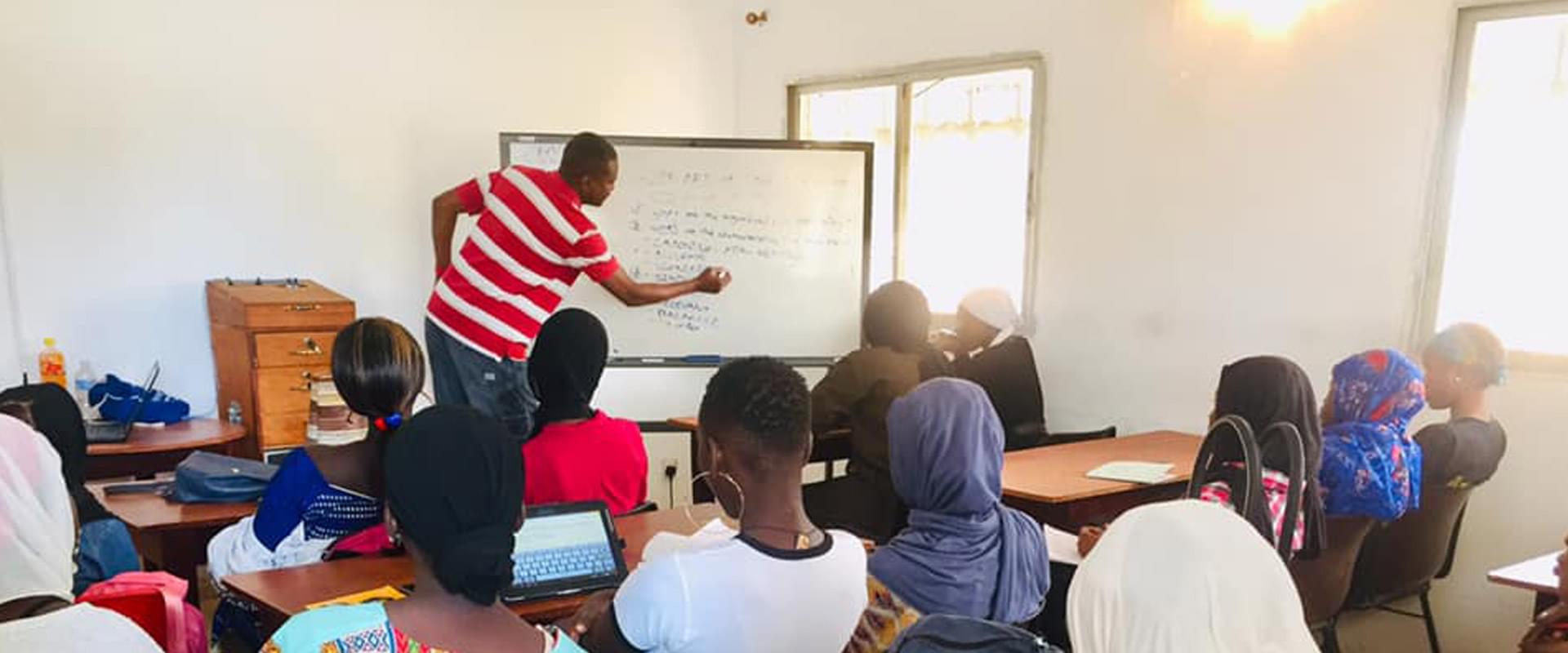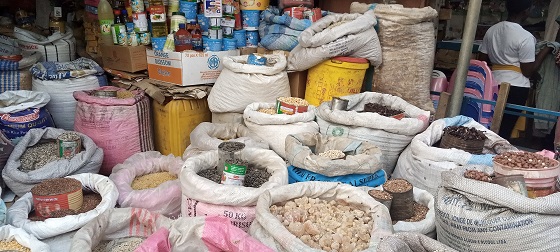
Dec 22, 2021 12:00 PM | Article By: Fatou Dahaba

Basic commodities displayed for sale at SereKunda market
The rise in the price of basic commodities in The Gambia for the past few months is unprecedented and rather challenging for low-income earners. The rise in prices isn’t showing no sign of decline weeks after Gambians re-elected Adama Barrow.
The Gambia is a country with 48.5% of the population living below USD 1
a day. The current level of inflation in the country is becoming a
nightmare for consumers whose expenditures are higher than their earnings.
The situation, which remains hostile for low-income earners, necessitated their call for concern of price hike of goods.
In Gambia, the inflation rate measures a broad rise or fall in prices that consumers pay for a standard basket of goods.
Inflation rate in The Gambia increased to 7.34 percent in October from 7.01 percent in September of 2021. While food inflation increased to 8:80 percent and interest rate increased to 10:00 in October 2021, according to the Gambia Bureau of Statistics (GBoS).
The Central Bank Governor, Buah Saidy said at a press conference on 8th September 2021 that the main drivers of food inflation were rice, vegetables, oils and fats, sugar, jam, honey and sweets, and other food products.
He added that consumer price inflation on food and non-alcoholic beverages accelerated to 11.5% during the review period compared to 5.2% a year ago.
Meanwhile, the World Bank also revealed that the headline inflation started increasing in January 2021, driven by food price increases, which is undermining household food security, but said it decelerated slightly to 6.9% y/y in August 2021.
Consumers’ complaints
Ebrima Mboob, 38, of Manjai and breadwinner of his family said feeding is the most expensive thing in the Gambia, right now. He complained that even D500 is not enough for the daily sustenance of the family (fish money) as a kilo of meat now costs D300.
He lamented that all his monthly earnings go into family feeding, while other bills such as school fees, health care, water and electricity are being taken care of by his wife and siblings in Europe.
“Even one does multiple jobs; it would be difficult to take care of his family needs alone. You must seek support from other relatives to help solve family needs,” he said.
Fatou Jarju, 40, fishmonger at the Wellingara market said addressing the recent rise in the inflation, especially on basic commodities should be the priority of the re-elected president, Adama Barrow. She said the little profit she makes from her business does not benefit her as it all goes into the needs of her family.
“It’s been five months now, I have not saved even D100 because from the little daily sales I make, I use that to sustain my family. My husband cannot do it alone. I have to assist him. The bills are also there and they should be settled and none of my children have graduated yet, they are all going to school,” the 40-year-old fishmonger said.
A single mother at Sinchu Baliya, Saffiayatou Sanyang, 52, is scared that she might be a street beggar, if the situation remains unchanged.
Sanyang, has been a mother of four, and a widow for the past 4 years who lives from hand-to-mouth through laundry service to put food on the table for her 4 children.
She said if fish could cost D100 while she goes to market with D150; there is a high tendency that her family would not consume a balanced diet.
“The recent increase in inflation should be a concern for everyone, not only the government. D200 of daily fish-money is no longer enough for families because fish alone cost D100 and above; while a cup of vegetable oil costs D25 that was sold for D10. Prices keep increasing and the government is not doing anything,” she decried.
Since the change of government in 2017, the country has been experiencing different waves of price hikes as inflation continues to rise.
Expert observation
Former Accountant General and one-time Finance and Economic Affairs Minister in the Barrow led administration; Amadou Sanneh said the government should encourage many investments by Gambians and improve inflows of the foreign exchange as well as to improve the exchange rate and strengthening of the Dalasi.
He said the Dalasi is falling and one has to factor in the valuation of the currency.
“Sound macroeconomic management, financial management of the economy will ensure inflation comes down and there will be price stability and the exchange rate needs to be checked,” Sanneh suggested.
The Gambia Government in a dispatch dated 23rd March 2020 introduced measures to control prices of essential commodities using the Commodities Emergency Powers Regulations, 2020.
The development followed complaints from vendors and consumers about the exorbitant prices of essential commodities, especially basic food items, which sparked panic among buyers in the country.
Another former finance minister, Abdou Colley said the inflation rise affects the consumers’ purchasing power and their ability to buy and consume goods; adding that it is also an effect on the rise in price of commodities which affect consumers ability to consume and maintain their pattern, likewise their welfare.
“Its number one consequence is a reduction in growth. It slows down growth, meaning if the price of goods is increasing, then the consumption pattern is affected which leads them to reduce the quantities they purchase and this would lead to a slowdown in growth in the economy,” Colley explained.
The former finance minister further explained that the rise in inflation also affects international competitiveness.
“Gambian goods become relatively more expensive compared to other goods. Whereby Gambia’s ability as a country to export goods to other countries is affected and this reduces the country’s competitiveness. So, inflation affects growth in the economy and the competitiveness of the economy and also consumers’ welfare,” he said.
NPP Gov’t Mitigation plan
The National People’s Party manifesto states that the NPP Government would encourage and support improved agricultural productivity and livestock production.
It explains that agricultural policies would seek to propel production and productivity through mechanisation to boost supplies at local markets for affordability by consumers.
The NPP government aims to invest in the private sector to increase the surface of consolidated irrigated land with technological enhancement to the ideals of mechanisation; as well as to work with the private sector and all other interest groups to build storage facilities across the country for both local and industrial farmers to add value to agricultural crops and products such as fruits, vegetables and flours.
Comments (0)
72 Likes
Leave your thought here
Your email address will not be published. Required fields are marked *